- News
- Reviews
- Bikes
- Accessories
- Accessories - misc
- Computer mounts
- Bags
- Bar ends
- Bike bags & cases
- Bottle cages
- Bottles
- Cameras
- Car racks
- Child seats
- Computers
- Glasses
- GPS units
- Helmets
- Lights - front
- Lights - rear
- Lights - sets
- Locks
- Mirrors
- Mudguards
- Racks
- Pumps & CO2 inflators
- Puncture kits
- Reflectives
- Smart watches
- Stands and racks
- Trailers
- Clothing
- Components
- Bar tape & grips
- Bottom brackets
- Brake & gear cables
- Brake & STI levers
- Brake pads & spares
- Brakes
- Cassettes & freewheels
- Chains
- Chainsets & chainrings
- Derailleurs - front
- Derailleurs - rear
- Forks
- Gear levers & shifters
- Groupsets
- Handlebars & extensions
- Headsets
- Hubs
- Inner tubes
- Pedals
- Quick releases & skewers
- Saddles
- Seatposts
- Stems
- Wheels
- Tyres
- Health, fitness and nutrition
- Tools and workshop
- Miscellaneous
- Cross country mountain bikes
- Tubeless valves
- Buyers Guides
- Features
- Forum
- Recommends
- Podcast
review
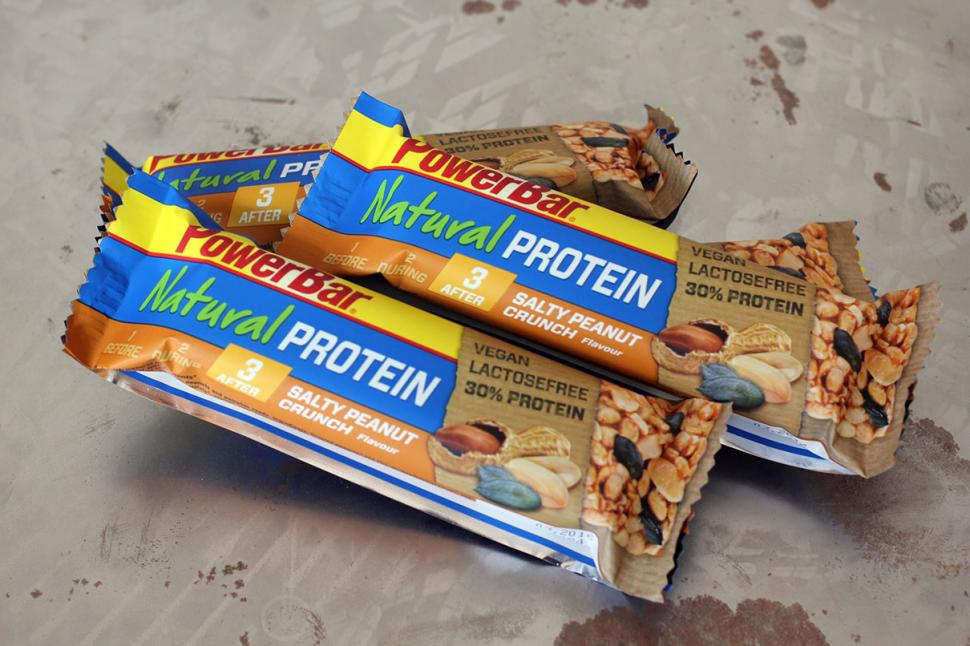 Powerbar Natural Protein
Powerbar Natural Protein£1.50
VERDICT:
Tasty protein bar designed to help muscle recovery after training or racing
Weight:
42g
Contact:
At road.cc every product is thoroughly tested for as long as it takes to get a proper insight into how well it works. Our reviewers are experienced cyclists that we trust to be objective. While we strive to ensure that opinions expressed are backed up by facts, reviews are by their nature an informed opinion, not a definitive verdict. We don't intentionally try to break anything (except locks) but we do try to look for weak points in any design. The overall score is not just an average of the other scores: it reflects both a product's function and value – with value determined by how a product compares with items of similar spec, quality, and price.
What the road.cc scores meanGood scores are more common than bad, because fortunately good products are more common than bad.
- Exceptional
- Excellent
- Very Good
- Good
- Quite good
- Average
- Not so good
- Poor
- Bad
- Appalling
Among the ever-growing number of sports nutrition brands, PowerBar is one of the originals, with a wide range of bars, gels, drinks and other products – including this Natural Protein bar. It's tasty, healthy and designed to help muscles recover after exercise.
The PowerBar Natural Protein Bar's main ingredients include soya beans, peanuts, almonds and peas, which are all sources of protein. Most sports scientists agree that you need protein to help muscles recover after exercise. In a cycling context, this means if your muscles recover well after training or racing, then you're stronger or faster, or just more comfortable, the next time you ride your bike.
Buy PowerBar Natural Protein bar
Find a PowerBar dealer
Unlike PowerBar's other protein bars (and protein bars from many other brands), the Natural Protein Bar does not contain milk or any animal products, and therefore is good for vegans.
The Natural Protein Bar comes in two flavours: salty peanut crunch, where other ingredients include pumpkin seeds and vanilla extract; and blueberry nuts, where other ingredients include cranberries and – you guessed it – blueberries.
A 40g peanut crunch bar gives you 12g of protein, along with 12g of carb and 9g of fat. The blueberry bar has the same amount of protein, with more fat and less carb.
In texture the bar is like a normal cereal bar; slightly crunchy, but not too hard. Certainly no danger of breaking a tooth as you tuck in. As the names imply, salty peanut bar tastes more savoury, whereas the blueberry bar is a bit sweeter, although the flavour isn't overpowering (which is a good thing) and the bar isn't over-sweet or sticky. Both flavours taste very good indeed and go well with a cup of tea after a hard ride or turbo session, and on that basis they're recommended.
On cost, a single Natural Protein Bar's official retain price is £1.50. Compared against similar - but not vegan - bars from other brands this is fair, although not an absolute bargain. For example, High5 protein bars (50g) official RRP £1.70, ZipVit protein bars (65g) around £1.75. However, most bars are discounted if you buy in bulk, and you can buy a box of 24 Natural Protein Bars for around £30, and even as low as £23, at the usual on-line stores.
As with all nutrition products, you should try a bar or two when you're not training hard, and not the day before a big ride, just to make sure the ingredients agree with you personally and have no ill effects on the stomach. Then, if you like the PowerBar Natural Protein Bar, stick with it. If you don't, then try something else.
Verdict
Tasty protein bar designed to help muscle recovery after training or racing
road.cc test report
Make and model: Powerbar Natural Protein
Size tested: 40g, Salty Peanut Crunch
Tell us what the product is for, and who it's aimed at. What do the manufacturers say about it? How does that compare to your own feelings about it?
This is a nutrition product, high in protein, designed to help your muscles recover well after training or racing.
The PowerBar website says: "Protein is an essential part of a healthy diet and an important building block for your muscles. When you have been active and particularly after exercise or gym sessions, your muscles need protein for growth and maintenance. PowerBar Natural Protein is a high quality, protein bar with the best, natural ingredients – it is ideal for athletes and those who lead an active life. It provides you with 30% protein in an innovative format: crunchy like a cereal bar, lactose free, vegan and made with natural ingredients. Ideal to support training adaptations after exercising. It also tastes great as a snack in between meals as it is important to consume protein regularly during the day for best results."
Tell us some more about the technical aspects of the product?
The PowerBar website goes on to list the following highlights:
* 30% high-quality vegan protein ... to support muscle growth and maintenance
* Lactosefree
* Vegan
* With well-chosen, high quality and natural ingredients
* No artificial flavours, colours or preservatives (acc. to law)
Rate the product for performance:
9/10
Performance is very good, in that the bars taste great and have no ill effects.
Rate the product for value:
7/10
Value is fair when compared to similar products.
Tell us how the product performed overall when used for its designed purpose
Whether these bars helped my muscles recover any faster than another brand's protein bar, or indeed a bowl of muesli, is impossible to say. As mentioned in the main review, when most cyclists choose a nutrition product, a lot comes down to taste, texture and whether the product sits comfortably in the stomach. On that basis performance is very good, in that the bars taste great and have no ill effects.
Tell us what you particularly liked about the product
Taste.
Did you enjoy using the product? Yes.
Would you consider buying the product? Yes.
Would you recommend the product to a friend? Yes, especially if they were vegan.
Use this box to explain your score
Overall, these bars would score a 9 based on the flavour and ingredients, but the price is not especially good value (though on a par with similar products), so that docks a point, giving an overall score of 8.
About the tester
Age: 53 Height: 5ft 10 / 178cm Weight: 10.5 stone / 69kg
I usually ride: an old aluminium Marin Alp for audax riding and winter training, an old steel Jensen for tootling and commuting, a steel Cotswo My best bike is: an old classic carbon Giant Cadex for sportives
I've been riding for: Over 20 years I ride: A few times a week I would class myself as: Experienced
I regularly do the following types of riding: touring, club rides, sportives, general fitness riding, Trail riding, gravel 'racing', rough-stuff, CX sportives (and anything off road on a road bike)
Latest Comments
- wtjs 5 min 26 sec ago
Just allow enforcement from video evidence. What am I missing?...
- Bungle_52 10 min 37 sec ago
Thanks for that. After a bit of research I now think that the difference is that it's parking on a zig zag rather than a cycle lane that is the...
- David9694 24 min 42 sec ago
Woman jailed for driving despite incredible number of penalty points and road ban...
- Neil MG 38 min 14 sec ago
Isn't the irony in Coren's shameless, spiteful little piece, that these attacks and armed robberies on defenceless or easy targets, will actualy...
- Marcus_Ironman_Richardson 50 min 12 sec ago
Re: Keeping your white shoes white...have you tried, Muck off bike cleaner?...
- chrisonabike 2 hours 5 min ago
Is that one of those new pronouns?
- chrisonabike 2 hours 48 min ago
Never bring a chihuahua to a dachshund fight?
- Grumpy Bob 3 hours 47 min ago
I was burnt before by buying into Speedplay X pedals - lovely pedals, but when Speedplay were bought by Wahoo they were discontinued and the cleats...
- David9694 11 hours 40 min ago
Young driver reported after flipping car in Wiltshire high street...
- Bigtwin 11 hours 50 min ago
Councils. Utter ficktards the nation over.
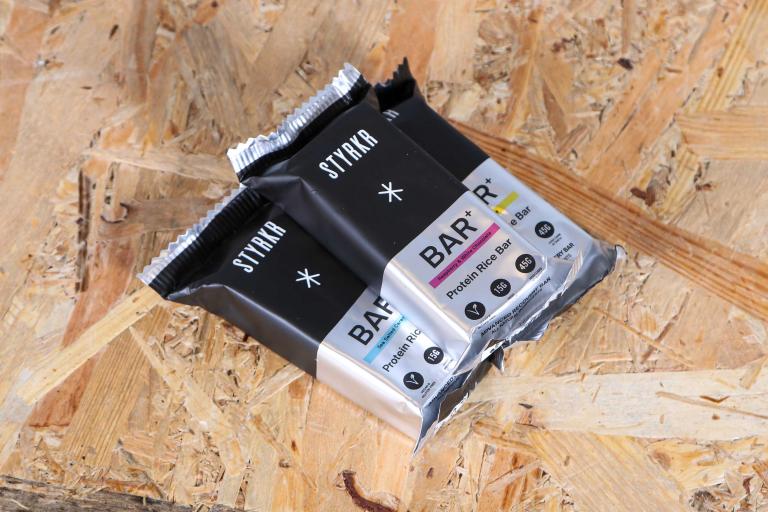
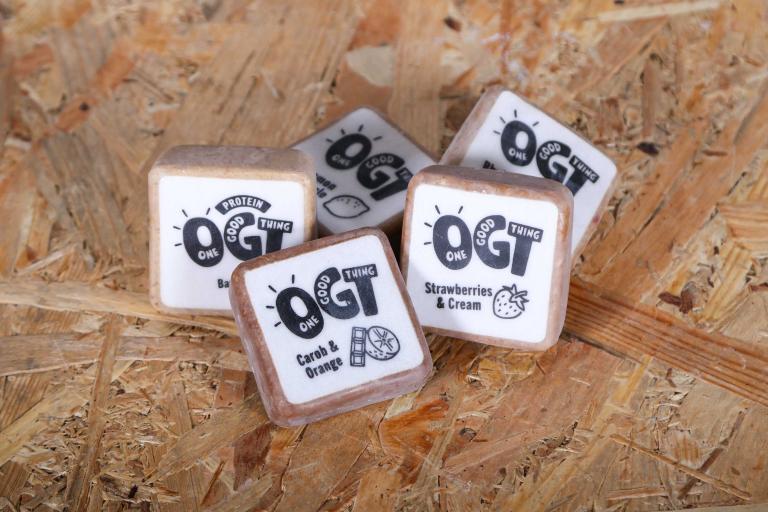
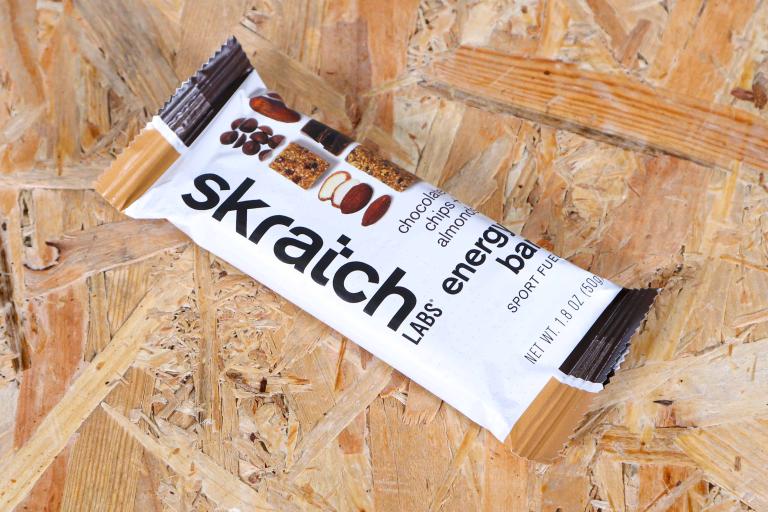
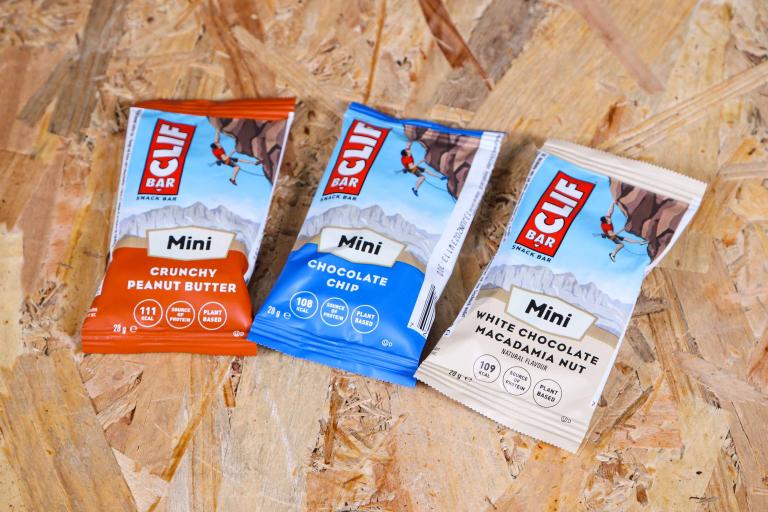
Add new comment
20 comments
Stop it, you're making me hungry.
That did make me lol.
What's wrong with sugar?
Try this:
http://rossmalpass.co.uk/frank-on-food-part-3-crack-carbs/
I just have, and not only is it shit I also won't get that time back. This might be a more balanced (and more understandable) overview article if you want to look at glucose/fructose metabolism and some of the pros and cons
http://www.nutritionandmetabolism.com/content/10/1/45
Hello.
Offering alternative rationale and evidence is science, and very welcome; personal abuse reflects badly on you.
Rather than trade papers with you, and I'm certainly not going to trade insults, other followers of this thread might wish to start with the following YouTube interview with an international expert Dr Aseem Malhotra. Science is always 'work in progress', and evidence has to be sifted, weighed and subject to rational critique.
Cheers.
https://youtu.be/vhhMpxErhRY
The abuse was not aimed at you, sorry if it came across at that - but rather the article which I found practically unreadable and contained almost zero net information.
I don't have any problem with the desire to restrict excess fructose (or glucose or sucrose) consumption, especially when taken in isolation / not glucose moderated, which is what Dr Malhotra was talking about as far as I can see. He also simplified the discussion of fructose metabolism and lipogenesis, perhaps too far, but again understandable to get the message across about the big, and very real, problem with far too much sugar in the diet of most of todays developed nations.
However fructose is not in and of itself something evil and certainly not analogous to diesel in a petrol engine - which is what I was taking issue with - especially when considering an energy bar for an active athlete. I hope that explains my point of view a little more clearly.
I appreciate the tone and content of your reply.
My blog developed from conversations with fellow cyclists without the background to find and review scientific articles or even a basic understanding of nutrition and physiology, and has been well received by the target audience; I'm sorry that it didn't do it for you.
Followers of this thread might like the following very easy introduction on YouTube from a respected scientist, and I've added the reference for the the peer-reviewed paper she's presenting in more 'ordinary' terms.
Other entry points for information on the whole sugar/carbohydrate/insulin debate include the twitter feeds of internationally renowned scientists such as @draseemmalhotra @pascalmeier74 @garytaubes @robertlustigmd which can lead on to the scientific literature for anyone so inclined.
http://sup.buzz/channels/55177825ec8d8377454d5c2e/55fa7c5eec8d835fd12ead16
A dose-response study of consuming high-fructose corn syrup–sweetened beverages on lipid/lipoprotein risk factors for cardiovascular disease in young adults
Am J Clin Nutr ajcn100461; First published online April 22, 2015.
Thanks for the link fukawitribe - I've just spent the last half hour reading through it and it's certainly thorough, balanced and understandable.
I had assumed that first link to crack carbs was just a bro-science joke and gave up reading after 30 seconds. Just painful, truly, truly painful to read.
So you want to eat high fructose corn syrup, palm oil, sunflower oil, glycerol, soy lecithin, more sugar, more fructose? It’s 18% sugar so at least 9% fructose (think diesel for your petrol engine), Yuk.
Clearly rather different than diesel for a petrol engine - presumably one of the reasons why people still tend to work after eating fruit - what makes you think that ?
Banana milkshake (1x banana, 1x pint milk, blender). Sometimes I've been known to add a couple of spoonfuls of horlicks as well (don't knock it, read the side of the jar and see all the good stuff it has in it - the full fat one, not the light one). If you don't want cow juice then I guess you could do the same with soya or almond milk.
Given up on sport foods. I use small snack bars on rides, and/or handfuls of dates.
Still using electrolyte tablets in drinks though, find I get cramp on a longer ride if I don't, so normally take a bottle with one of those in and a bottle with sugar squash in.
I'm guessing you're a vegan? Miles and Freddy are both right though. A pint of semi-skimmed after a ride rehydrates and contains a healthy amount of both protein and carb's for muscle recovery.
Yep - you guess correctly.
Just the thought of milk makes me dry heave. But then again so does the thought of killing an animal and crunching it's fetid flesh between your teeth before swallowing said animal into your digestive system.
Disgusting. Why an adult would want to drink the fluid produced from raping another species is beyond me.
Milk
I get what you're saying, I was just pointing out that if you add enough pseudo-science babble to sports food products, people will happily pay very silly prices.
Mmm... For £2.19 at Tesco you can buy 550g of salted peanuts. 25% protein and some salt to replace all the salt you sweated out on your ride and enough to last you many rides .
.
I would understand your point if they're selling peanuts. But you also need to buy 300g of blueberries at Waitrose for £3.50, 150g of almonds for £2.25, 500g of soybeans for £2.39 then mix it altogether and add emulsifiers and natural flavourings such as vanilla and cook it. Then you can buy special wrapping paper for food really really cheap and fashion the mixture into bars and wrap them.
1 pint of milk, 22gms of protein....and re hydrate .......